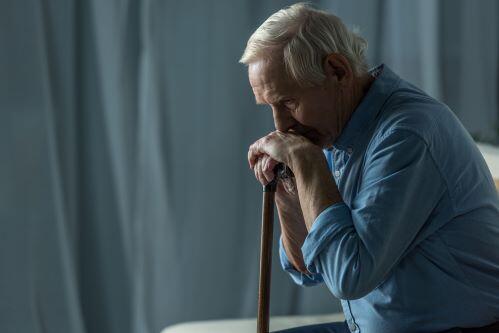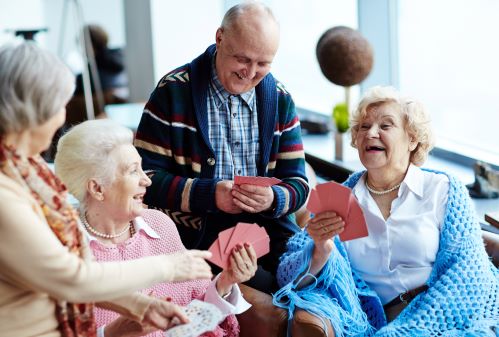
4 Signs And Symptoms Of Elderly Depression
Depression in older adults can occur at any age, despite their accomplishments or background. Unfortunately, many older depressed adults or their families don't take the necessary measures to obtain the required treatment, or fail to recognize the symptoms of depression. Recognizing these signs early can mean the difference between a short-lived depressive episode and years of debilitating suffering.
What Is Depression?
Depression is a disease that results from a chemical imbalance in the brain and the body. Depression can affect anyone, of any age or gender, and can last a lifetime, if not treated properly. It can lead to major changes in your lifestyle and cause you to lose control of yourself.
Sadness is a natural emotion. It's normal to feel sad from time to time. However, when sadness becomes overwhelming, this normal emotion can become debilitating and lead to depression. Every individual will manifest depression symptoms differently. Sometimes, a depressed person may not seem sad or in despair at all. It's important to catch the signs and symptoms of depression to prevent it from getting worse.
Depression is a complex illness because there are many triggers or causes. Person A may experience depression due to a different reason from person B. Certain stages in life or life events can also trigger depression.
Here are some possible causes of depression:
- Stressful or upsetting life events
- Loss or death
- Illness or health condition
- Genetic predisposition
- Hormones or hormonal changes
- Certain medications
- Substance abuse
- Personal conflict
- Physical/mental/sexual abuse
What many people don't realize is that age is another possible cause of depression. Elderly people are at high risk for depression. Feelings of sadness or despair may increase as a person age, which may be exacerbated by other factors, such as illnesses, money problems, or lack of social connections. Understanding the symptoms of elderly depression will help you care for aging family members better so they can be treated early on, or, better yet, avoid the possible causes of depression.
Depression In Older Adults: Signs And Symptoms
The symptoms of depression in older adults can be recognized if you know what to look for. Generally, any change in mood, appetite, energy, and thoughts should be reported to your personal caretaker or health provider, immediately. These changes may seem like normal aging effects, but should be noted.
Also, feeling blue and hopeless are also common signs, especially if there has been no progress in behavior or function. If you're living with older adults, such as your parents, or caring for aging relatives through Home Nursing with Heart or any other home nursing institution, here are the signs and symptoms of depression to watch out for:
1. Mood Changes
Extreme sadness is a classic sign of depression but the major symptoms aren’t the only signs to look out for. If you notice erratic mood changes in your elderly loved one, they may be suffering from depression. The changes in mood and behavior exhibited by an older adult may be quite noticeable. They may become oversensitive when it comes to small things. They may feel overly guilty about things or decisions made in the past.
2. Loss Of Interest In Normal Activities 
People usually don't just lose interest in their hobbies as they age. Many times, seniors battling depression may begin to lose interest in activities that they used to find enjoyable. The loss of interest may be caused by physical and mental challenges encountered. If you're noticing these things, there may be an underlying medical problem that needs to be treated. These changes may also be a result of medications your loved one is taking, or, maybe, they’re experiencing an illness that’s bringing forth these changes.
3. Sleep Problems
Disrupted sleep patterns may be a sign of elderly depression, which can come with feelings of persistent fatigue, headaches, and confusion. Rest is very important in maintaining the best health of elderly loved ones. If you notice that your parent is losing sleep or has an erratic sleep schedule, have them checked immediately by a physician.
4. Feeling Hopeless
Emotional signs of depression in older adults are usually subtle, but they often include sadness, hopelessness, or feelings of worthlessness. It's important to talk to a loved one if you notice any of these symptoms. If nothing is obvious, but it continues for a significant period, you should mention it to your doctor.
These symptoms can all be accompanied by other emotions or behaviors, such as anxiety, sadness, irritability, changes in appetite, and difficulty concentrating. If left unchecked, depression can lead to substance abuse, suicide attempts, and other physical health complications. The best thing you can do for yourself or your loved ones is to start early with depression screening and treatment.
Elderly Depression: Medications And Treatments
If the doctor decides that depression is an issue, then they’ll most likely recommend treating the condition with anti-depressant medications.
There are several medications on the market designed specifically to treat depression in older adults, including tricyclics (TCA), selective serotonin reuptake inhibitors (SSRIs), and selective serotonin and norepinephrine reuptake inhibitors (SNRIs). These medications work by preventing serotonin and norepinephrine from being converted to their highly effective anti-depressant properties. They also prevent these substances from being transported to the brain. However, they also carry the possibility of unpleasant side effects, including insomnia, muscle spasms, nausea, diarrhea, dizziness, mania, decreased libido and sexual dysfunction, as well changes in weight and appetite.
While chemical medications are useful, there are also other forms of treatment, such as talk therapy or cognitive behavioral therapy. These are effective ways to treat depression, in conjunction with the right medication from the physician. A therapist, like a Campbell therapist, can help your older loved one understand how their thoughts are influencing their life. If the therapy is done properly, older adults may be able to control their thoughts and regain control over their life.
Takeaway
When your aging loved one begins to lose interest in activities they used to enjoy, it can be very difficult to pinpoint exactly what it is that’s causing the changes. If you have a feeling that your elderly loved one needs professional help, then the best thing for you to do is to schedule an appointment with a mental health doctor or a psychiatrist.
The doctor may ask you some questions about your loved one's life to obtain important information that’ll help them determine if depression is an issue. A mental health specialist will also be able to prescribe medication and treatment if necessary. With proper care and support, you'll be able to help your aging loved ones live out their years without falling into depression or other debilitating mental health issues